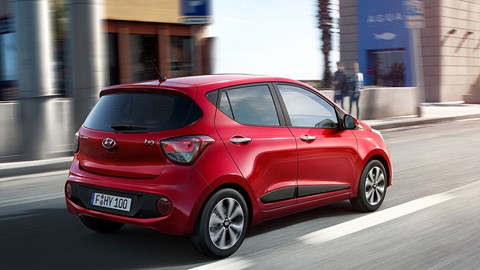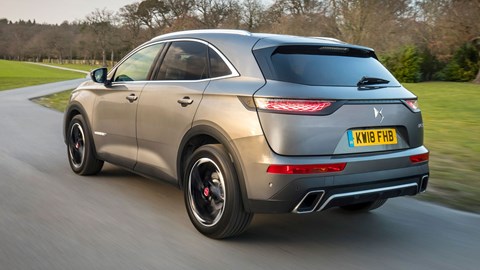► Monthly PCP finance costs have risen by up to £98
► No Deal Brexit likely to mean further price hikes
► What you can do despite the above
According to research from our sister site Parkers, PCP finance bills for many of the UK’s most popular cars have rocketed by up to 49% – all in the wake of the 2016 Brexit referendum. Drivers signing up for a new finance deal in early 2019 will now pay up to £4,606 more over their contract than those who collected the keys in early 2017.
Let’s use the BMW 116d Sport as an example. In 2019 drivers wanting the compact Beemer would have to stump up an additional £98 per month compared the same contract two years ago. This follows a dramatic drop in the value of the pound in the last few years, and that’s led to higher costs for many cars – especially those imported from the EU or reliant upon a large proportion of EU-sourced parts. Yes, that’s your premium German hatchbacks, then.
Further motoring advice around Brexit:
New car finance costs are rising faster than cash prices
More than 91% of new cars in the UK are financed and while cash prices are rising, PCP finance monthly payments are rising even faster, Parkers states – that means higher monthly bills when you come to change your car.
What’s affected most?
It’s the smallest cars that are increasing in cost fastest. While a Suzuki Celerio would have set you back £76 per month in 2017, the same car has leapt to £113 per month in 2019. Yes, the cash price has increased by a substantial 29%, but monthly payments are up 48%.

Meanwhile, a basic Peugeot 108 has increased in cost from £126 to £168 per month – a rise of 34% and a Hyundai i10 that cost £91 per month in 2017 is now £113 per month – a 25% increase. The Fiat Panda has rocketed in cost by a similar amount, with the Vauxhall Viva up by 21%.
But not all small cars are increasing in cost this quickly; the Fiat 500 has actually dropped in price from £175 per month two years ago to just £163 for someone signing up now. You would expect that though, since it’s been around for more than a decade.
The best car finance and leasing deals: our sister website CarZing

Brexit, car finance and PCP: our advice
Shop around, and shop broadly
There’s no way around it, prices are going up, but there is a way to get a better deal – and it’s going to involve lots of homework. First off, don’t just get one quote from one dealer. Since finance costs vary so dramatically, it’s worth getting quotes for a handful of different models to see which offers you the best value.
Don’t focus on cash prices either. You may think you’re being smart opting for a left-field option like a DS 7 that has a lower cash price than some rivals, but since PCP finance costs are affected by factors including residual values, deposit contribution discounts and interest rates, a two-wheel drive DS 7 is likely to cost more per month than a more powerful four-wheel drive Audi Q5.

That means even if you think you’re considering something sensible and affordable like a Vauxhall Astra, get quotes for several rivals, as you could find that the Ford Focus, VW Golf and Kia Ceed alternatives are all dramatically less per month. With more desirable cars often being the ones with low monthly payments, it pays to shop around.
Put more money aside for a deposit
It’s worth putting as much money aside every month as you can, so that you’re ready even if costs continue to rise. An extra £50 per month aside for a couple of years quickly means you’ve got £1,200 more to put down as a deposit, and that could mean the difference between getting the car you want, and having to settle for something second-hand.
And finally, get quotes ahead of Brexit day
With even the Government seemingly clueless about what’s going to happen on March 29, it’s worth getting finance quotes in the run-up to Brexit day, so you can see whether you’re better off with the pre- or post-Brexit deal. Manufacturers honour their deals for different amounts of time, so it’s worth getting a number of quotes in the week up to Brexit and asking how long they’ll honour them for. This could be a day, a week or a month, potentially. Since finance deals change every quarter – meaning the next update is scheduled on April 1, getting a quote a few days before Brexit should give you several days in April to establish whether the pre- or post-Brexit option offers you better value.

And post-Brexit?
The prospect of a No Deal Brexit would likely see substantial price hikes, thanks to the predicted collapse in the value of the pound, but it’s possible some manufacturers would be desperate to shift new cars. That means that only by having a series of quotes can you determine when to sign on the dotted line.